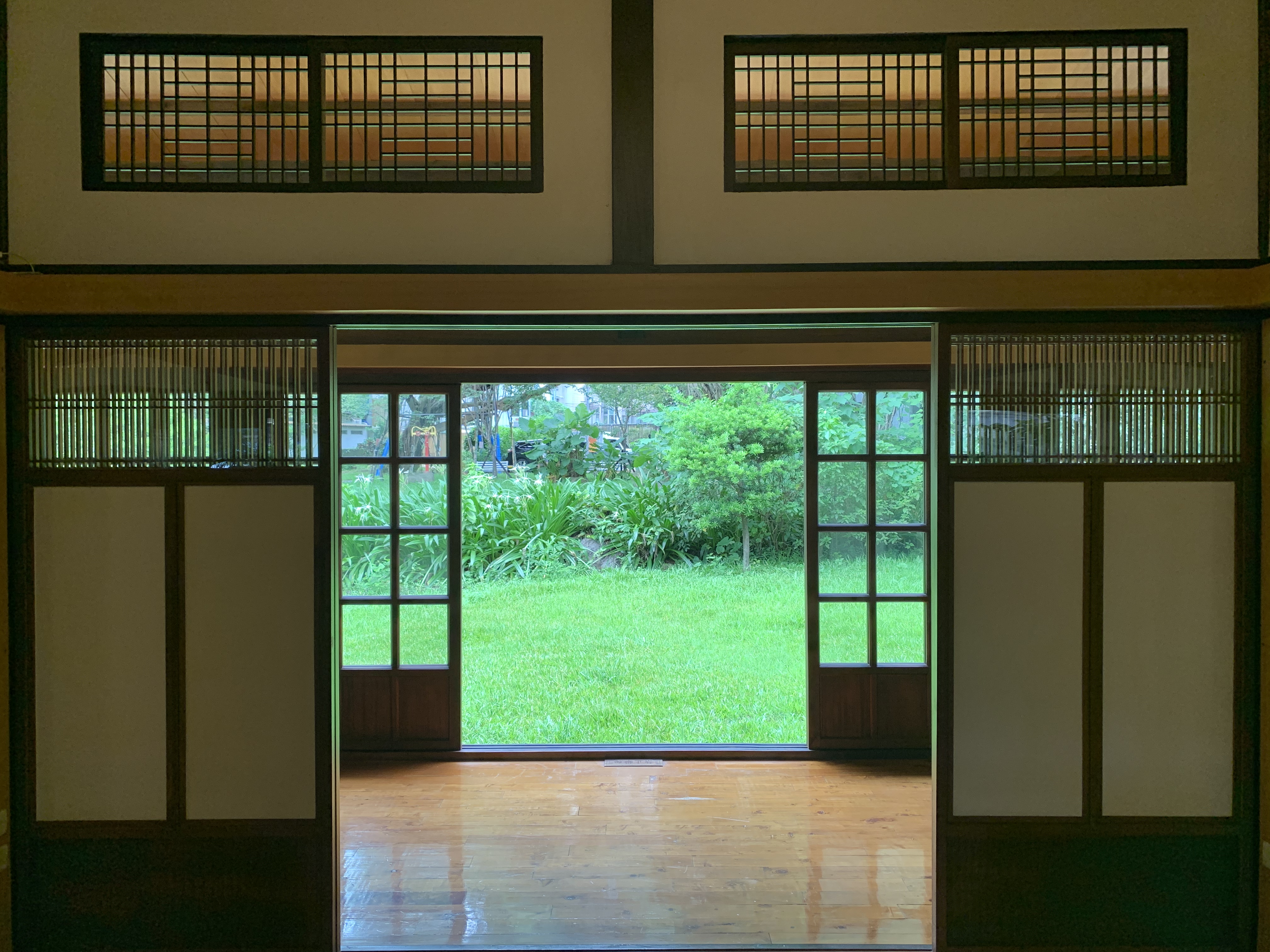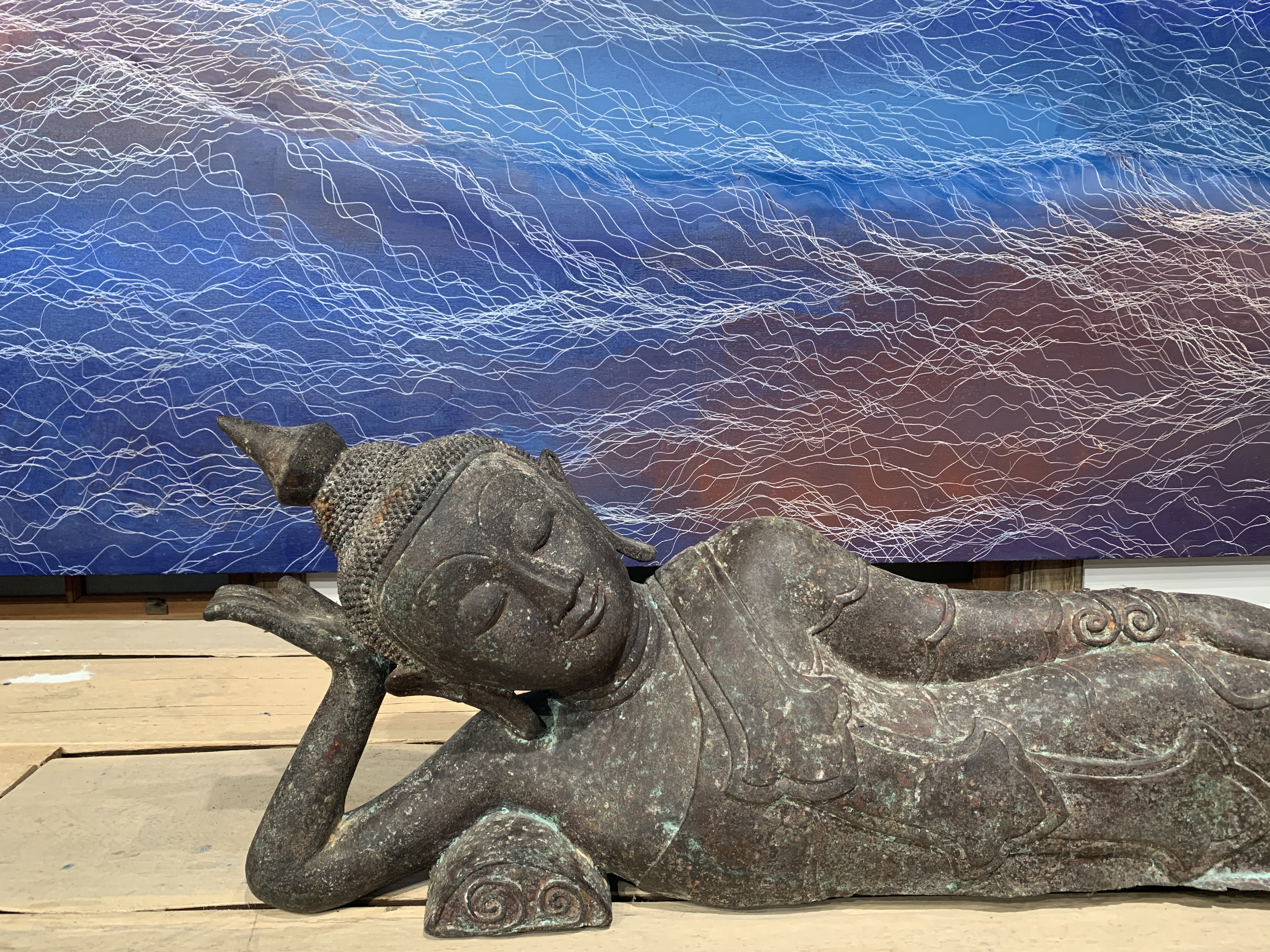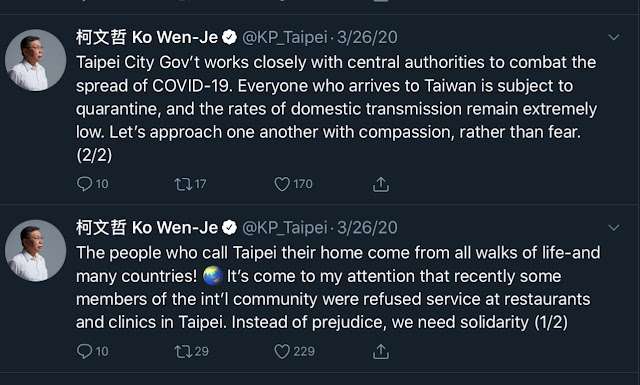This is the first of a two-parter. You can read the deep dive into Ma's actual claims here.
I was going to write a post going after an issue I'm angry about in a sort of general, ambient sense. But this other morsel of news I'm also angry about is timely, so at the risk of blogging only when I'm angry about something, here goes.
Yesterday was June 4th, the 33rd anniversary of the Tiananmen Square Massacre. Certainly, in Taiwan and around the world, politicians who put out statements about Tiananmen anniversaries generally avoid the overtly offensive. Some are sharp criticisms, whereas the worst of them are simply too anodyne.
Take President Tsai's Facebook post for example. She touched on how Taiwanese people and their leaders, as in any democracy, hold a variety of opinions that don't always agree, but can hopefully be united through transparency, sincerity and communication. She touched on the crackdowns in Hong Kong, saying they won't destroy the memories of the people. Perhaps it wasn't necessary to talk about the pandemic and vaccines, but overall it's a perfectly acceptable statement.
Then there's former president and human dingleberry Ma Ying-jeou. I started out calling him a "garbage person" but honestly, I don't want to insult Taiwan's hardworking sanitation professionals by implying their necessary and respectable jobs might also describe such a man.
Ma spent most of it trashing the democratically-elected government of his own country, and included some brief praise -- yes, praise -- of genocidal dictator Xi Jinping. In this swash of effluent, he added a few admonitions that June 4th should be recognized and "rehabilitated", with vaguely-defined addressees. In other words, there are a few okay sentences in a big ol' gurgle of vomit.
I'm not a professional translator and Mandarin isn't my first language, but I'll take a stab at parsing what he said in English. I think this is important because, having checked the machine translations available from Facebook and Google, the former is unreadable and the latter, while okay, will be unclear to anyone unfamiliar with the issues Ma touches on.
I've broken his words down into chunks for analysis. It's easier this way, and anyway "chunks" are a good descriptor of what Ma is spewing. At the end we'll look at why his post matters at all.
Today marks the 33rd anniversary of the June 4th Incident. On the one hand, I once again call on the mainland authorities to courageously face history and accept responsibility so as to move forward. On the other hand, I also feel the need to use this opportunity to reflect on the fact that although Taiwan claims to be a "democracy", it is slipping step by step into "unfree democracy." It's highly worthy of vigilance.
This paragraph is hardly the worst. Note however that Ma calls on "the mainland authorities" to recognize the Tiananmen Square massacre. Yes, the use of "mainland authorities" is a huge eye-roll -- not the Chinese government, and nobody in particular -- but is expected coming from him. He'll continue the trend of calling China "the mainland" throughout the post.
I can't imagine why he would think the Tiananmen Square Massacre deserves to be "one hand" of a larger argument -- it stands alone as its own issue -- but this is Ma Ying-jeou.
I noticed that he couldn't even use the words "Tiananmen Square", let alone "massacre." Tsai also calls what happened an "incident" (a common way of naming historical atrocities in Mandarin), but at least she uses the word "Tiananmen." That's nothing, however, compared to the straight-up offensiveness of using June 4th as an opportunity to rant about how "on the other hand" Taiwan is so "undemocratic" that it deserves more space in a post about Tiananmen Square than the actual Tiananmen Square!
As a quick reminder, Taiwan is consistently near the top of democracy rankings in Asia and the world. Ma alone is screaming into the wind that Taiwan is somehow unfree.
Note as well that this "unfree democracy" tripe is one of Ma's common refrains; this isn't nearly the first time he's used it. It's pretty ironic, isn't it, that Ma is able to go online on social media from Taiwan and say whatever he likes about Taiwan, including scathing (if untrue) criticisms about its government, overall level of freedom, and ruling party. It's almost as if he has the freedom to talk about this issue. Huh!
The world is unsettled lately. The trade war launched by the US against the mainland in 2018, the explosion of the COVID-19 outbreak in 2020, and the Russia-Ukraine War that began in February affect global peace and stability at each step. Therefore, I would like to remind the mainland that although the so-called "anti-China" trend initiated by the United States has complicated the situation, that the mainland can turn passivity into action and send a more positive message to the rest of the world.
So instead of talking about Tiananmen Square in a post ostensibly about Tiananmen Square, Ma decides in the second paragraph to attack the United States for starting a "trade war". I don't want to throw the Trump administration even the tiniest of bones, but was it a trade war, or was it the US finally standing up to China's unsavory trade practices, IP theft, tendency to tear up any agreements it doesn't like and realization that dealing with genocidaires is maybe a bad thing?
What's more, isn't his own party trying to rebuild friendly ties in the United States by opening a representative office, after ceding so much political ground to the DPP there? Isn't KMT chair Eric Chu there right now? It's not just offensive (and parroting the language of the CCP on US-China ties) but politically unwise to write a post about Tiananmen, and then use it to attack the United States right now. Is he trying to sabotage his own party, or does he assume this is vitriol for a purely domestic market -- that nobody in the US will pay attention to his words?
Anti-Asian hate crimes against individuals are indeed a problem, and certainly Trump harmed rather than helped in this regard. That said, the Chinese government bears responsibility for its own poor image as an institution in the United States and beyond.
Notice as well that he addresses this to unnamed authorities "on the mainland", not any specific leader or government body. Rather than scathing criticism, it reads as "c'mon you guys, all you gotta do is just recognize this so you can put a positive image out there!"
Commentators kinder than me might call this diplomatic. I call it overly-gentle and downright delusional.
In October last year, Mr. Xi Jinping, the mainland leader, spoke of democracy at Central People's Congress Work Conference, extolling the principle that the people hold all the power in the country, and that as masters of the country they rule it to the greatest extent possible. I sincerely believe this is the right direction to build a society with rule of law. If the trauma of June 4th can be truly faced and dealt with [rehabilitated], not only will it project a good image internationally, but it will cause the two sides of the strait to cease moving further and further apart.
By the third paragraph, he's praising Xi Jinping for his words and "the right direction" he's taking. This compliment is the only time he will address Xi by name in the entire post.
Nevermind that Xi's words are a straight-up lie: people in China hold none of the power, they are not the masters of their country and they don't rule it to any extent. Ma surely knows this, but he never lets an opportunity to bestow some compliments on Xi no matter how inappropriate the timing, and how inaccurate the compliment. This can't be the "right direction" if Xi literally isn't doing what he says here, and is straight-up lying! Which he of course is, and Ma knows he is. Indeed, taking the time in a post about Tiananmen Square to praise Xi Jinping is easily the most offensive part of this whole thing.
Not only that, he's praising Xi Jinping for talking about democracy and governance by the people! In a post about the anniversary of Tiananmen Square! What in the actual name of Jesus is going on here?
To quote respected activist figure Chou I-cheng, Ma can praise Xi and denounce Taiwan's democracy if he wants, but it's particularly disgusting to do so on such a significant day.
He adds at the end that such a recognition might bring "the two sides of the strait" (note: not "China and Taiwan" because he doesn't recognize Taiwan's sovereignty) closer together. Which perhaps it could, but the gulf between the two nations exists not just because of June 4th, and not just because China isn't a democracy, but because China wants to subjugate Taiwan -- and Taiwan does not and will never want to be annexed by China.
Nevertheless, what does democracy mean when the two sides of the strait have different systems, their narratives and practices are different. Beyond appealing to the mainland, we should also turn inward and examine our own democratic development more carefully.
Democracy means the thing that Taiwan has where the people elect their leaders and have human rights, including the freedom to criticize and remove those leaders. It also means the thing China doesn't have.
It's inappropriate and offensive to attack Taiwan in a post that purports to be about events that took place in China, especially as Taiwan is indeed democratic and China is not.
Reading it, you'd almost think China wasn't so bad but Taiwan was a mess, when the opposite is true.
Although Taiwan still flies the banner of democracy, under the Democratic Progressive Party's governance, it has gradually slid into "unfree democracy": closing television news stations, liquidating opposition parties, "checking the water meter" of the people [this is a slang term], interfering with the judiciary, an all-around 'greening' [turning pro-DPP] of independent agencies, revising the law to exonerate the corrupt former president [Chen Shui-bian], using internal propaganda to mislead citizens and sowing hatred simply to follow the 'political correctness' of the so-called 'anti-China protection of Taiwan'. International public opinion turns a blind eye to these initiatives, which harm Taiwan's freedom and democracy, but I am deeply concerned.
I have so much to say about this litany of accusations against the DPP. In fact, I dive into it here.
Each is worth diving into for several reasons: they provide the "evidence" for Ma's perspective and case against the DPP in the most detail, they're commonly reported in Chinese-language media but not so much in English, and they form the backbone of the DPP's argument for why they're better leaders than the DPP.
They're mostly bullshit -- though the most plausible ones are listed first -- but breaking down why each one is indeed its own uniquely-shaped steaming turd will take a lot of time and verbiage.
It's fascinating how Ma tries to claim the high ground and make it look like he has a detailed and multi-faceted case against the Tsai administration, which is mostly founded on a heaping pile of garbage.
Finally, he seems upset that the international community has a generally positive view of Taiwan (or that understanding of and sympathy for Taiwan is growing among Western nations). Why? Does he want the world to think Taiwan is a shithole? Does he want everyone to disparage Taiwanese democracy the way he does?
Furthermore, the coronavirus pandemic has shown over the past two years that the government has not done enough to procure vaccines, and their chaotic 'rapid screening' policies show that the government's "proactive deployment" is a falsehood. DPP leaders and the so-called "1450" [the so-called DPP "Internet army", named for an amount of money said to be allocated toward cultivating it] attack and discredit any critics [the actual phrase is "smear red"].
I'll admit that Taiwan's pandemic response has not been perfect in every aspect, at all times. There have been poor decisions, politically-motivated choices and lags. However, I'd describe the overall pandemic response as sterling -- no, gold standard. Anyone who thinks that Taiwan did a poor job handling the pandemic is straight-up full of it. All you need to do is look at how the entire rest of the world save possibly New Zealand handled it. Most accusations to the contrary distort what actually went on with the early vaccine purchases or blow up small mistakes into catastrophic ones. Most of it is based on lies.
As for the "1450" Internet troll army, well, I'm sure every party has people working on influencing public conversation. I won't pretend it's beyond the pale to say the DPP has one (and the KMT surely has one too -- I recall an ad surfacing years ago promising free bento boxes to attendees of a seminar on how to post online to bolster the KMT's image, but can't find a link).
That said, I can't find any proof that the "1450" army actually exists, and it would be very weird to allocate such funds through the Council of Agriculture, no? What's more, people decrying the "1450" have been known to misattribute the origin of the phrase to mean NT$1,450 paid to each Internet troll working for the DPP.
Basically, there are a lot of accusations and very little proof here.
In sum, Taiwan actually has done an overall excellent job handling the pandemic. When you see people online praising that, it's because there's good reason to do so. If the KMT is sore that it's not very popular now, perhaps they should look at their own poor governance and attempts to force Taiwan toward closer relations with China.
When we shouted that the opposition should be treated kindly in order to establish core values in common on both sides of the strait, the ruling party is suppressing or even eliminating dissidents, while falling into "unfree democracy" and "elected dictatorship."
I have more to say here, but I'll save that for my next post.
Obviously, there is no evidence -- I don't even have a link -- that the DPP is doing this. Name one dissident who has been "suppressed" or "eliminated" by the DPP.
Now, how many dissidents has the KMT suppressed or eliminated in its history?
There ya go.
There are two more points worth making here: first, tying "finding common core values" to "cross-strait relations". This implies that Ma's complaint isn't that the DPP hasn't tried to find common ground with the KMT -- it's hard to say whether they have or not, as the KMT doesn't seem very interested in finding common ground with them -- but rather that they haven't tried to find common ground with the Chinese government.
This is, of course, a euphemism for refusing to engage in talks that are aimed at eventual unification between Taiwan and China, or a recognition of the (fabricated) 1992 Consensus. It means that the DPP can't and won't work with China's insistence that all negotiations and discussions must begin with mutual agreement that Taiwan is part of China and Taiwanese people are Chinese.
Which they can't -- Taiwan isn't part of China, Taiwanese mostly don't identify as Chinese, and it goes against both the public consensus and the DPP's ethos. That's literally the whole point.
That line about "elected dictatorship" is another howler, barely worth acknowledging: there is no such thing as an elected dictatorship. It's possible for democracies to be less free or even unfree -- and there is such a thing as a sham democracy (I mean, even Vladimir Putin gets "elected"). But there is no such thing as an elected dictator. If you are elected and you can be removed, you might have authoritarian tendencies, but you are not a "dictator".
On the 33rd anniversary of June 4th, we hope that the mainland will face history and move forward, but we cannot sit idly by and watch Taiwan's democracy fall backward, or advance toward "unfree democracy" and "elected dictatorship." We must begin with ourselves and defend Taiwan's true democracy.
There's not much to analyze here: this paragraph just concludes the post and re-iterates the justification for using a post about Tiananmen Square to attack the Tsai government, Taiwanese democracy and the general trend away from identification with Chinese nationhood and ideals in Taiwan.
It is worth discussing why this matters, however. Who cares about this old fuckbucket's post?
Well, first of all, because the media is paying attention. New Talk posted Su Tseng-chang's response calling his words a "laughingstock". KMT-friendly outlet United Daily News, widely seen as reputable, simply reposted it without comment. People predisposed towards pan-blue sentiments will read that and not see all the problems inherent in his post, or question whether it's appropriate to use the anniversary of the Tiananmen Square Massacre to attack their own government, implying that China might move in the right direction (and indeed is, according to Ma, already doing so) and Taiwan is the real authoritarian state.
What's more, Ma still unfortunately holds a hell of a lot of power in the KMT, keeping it from reforming into a party Taiwanese might actually want to vote for (that is, one not so laser-focused on insisting Taiwan is Chinese and the CCP is a friendly government and good-faith negotiator when it is clearly neither). He's very good at rhetoric -- I might think his post is a steaming turdpile, but I have to admit it's a well-written turdpile -- he's pulling a hell of a lot of strings in the KMT, and he's probably not going away. He almost certainly has a hand in the general tenor and perspective the KMT wants to project into the world and Taiwan.
That's a shame, as he seems to have nothing useful, inspirational, thoughtful or even truthful to offer.










